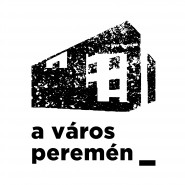
We look forward to welcoming you at the community donation event
“Live Giving” to be held at 18th on Thuesday, 22 November 2016.
The venue: Budapest Music Center – Library (9th district, Mátyás u. 8.).
Participants will have the chance to learn about and support local initiatives, including the Sound Map of Budapest, the Protected Harbour and the On the Edge of the City – all of which are based in our district.
Title of the project: ON THE EDGE OF THE CITY
Background information about the organization and its project
The project has been started in autumn 2015 with the participation of 15 young men and women from Budapest. The preparatory research and work was made by students of the faculties of social sciences, liberal arts and arts. Later on some young people who grew up on Illatos street has joined us. At the beginning we were supported by the Norwegian Civil Fund. Recently our background institute is the Mérei Ferenc College for Advanced Studies into which art-theoretical and social-critical worldview the work we make is well fit. The real work is made by the group named „On the Edge of the City”.
Aim of the project to be supported
Our aim is to collect and introduce the history of the late ’Djumbui’-settlement of Budapest’s 9th district with the help of its once were inhabitants. This project is important not only from a social-historical point of view but its results can add to the way we understand city poverty and stigmatization. The different artistic tools we use can inspire a social dialugue as well. We would like to draw closer these complex topics to as many people as we can through artistic methods, community programs and understandable, but scientifically made materials. We also want to provide space for those who have been involved to think together and help those various groups of people who inhabit the district and the city to live together in bigger harmony.
Which problems are to be solved by our project?
The questions of city poverty and stigmatization we deem important because these presents a constant social problem. The stories of the once were inhabitants of Djumbui make visible the problematics of habitation crisis when they put the people into focus instead of the number. The interviews made during the research provide concrete examples in respect of stigmatization connected to poverty helping us to reflect upon this problematics and diminish prejudices.
Which solutions are offered/which kind of activities are planned in the project?
We plan to organize a series of events that will take place in Ferencváros in April-May 2017. During this three weekends the programs can be visited for free. Here we will present the findings of our research in an innovative and easily understandable way and we will provide a meeting place for the inhabitants of Ferencváros, of Djumbui and for the wider public. We will invite non-profit organizations, social workers of the 9th district and workers of the late Djumbui Help for this event.
1th weekend – Djumbui Days
Technical/art programs: photo exhibition, showing films, introduction of the book called Djumbui Diary (coloured publication, 50 pages long, made with the help of the once were inhabitants, this easily understandable writing revives the most important moments of the settlement’s history), Living Library that creates an opportunity to meet with the late inhabitants.
Community programs: picnic with the late inhabitants, programs for kids and families, social circus.
2nd weekend – Back to Djumbui! Alternative city tour
Audio-journey: the history of Djumbui and its nearest surrounding will be revived through the narration of the once were inhabitants. The journey turns out to be an interactive game.
3rd weekend – On the Edge of the City conference and round-table discussion
We will show the findings of our research to the academic public in the framework of a conference. To the round-table discussion we will invite the experts and researchers of the topic and also some of the once were inhabitants.
How much support do you need minimally? How much support do you expect from Live Broadcast and how do you plan to use it?
– ADVANCED LEVEL: 750.000 HUF, Programs to be made: see BASIC LEVEL + Djumbui Diary Djumbui Diary: 300.000 HUF, printing cost: 250 pieces, 160.000 HUF, we have received an offer from a printing house (50 pages, 4+4 colour), graphic design, page layout: 60.000 HUF, editor: 80.000 HUF
How will you measure the efficiency of the program you’ll have made?
Attendance / number of participants (300-500 persons)
Number of volunte and co-workers 2 times)ers (25-30 persons)
Publications / number of mediapublicity (10 times)
Number of non-profit organizations we work with (6)
Measuring the online publication (number of shares, likes, reaching 1000 persons)
Number of persons who received our book (taken publications, publications we directly send to institutions – schools, family daycare centers, non-profit organizations) (150 pieces to once were inhabitants, 100 pieces to non-profit organizations and other institutions)
Project evaluation by co-workers / professional self-reflection and written report (meeting of the leadership 2 times, project evaluation by volunteers and co-workers 2 times).
